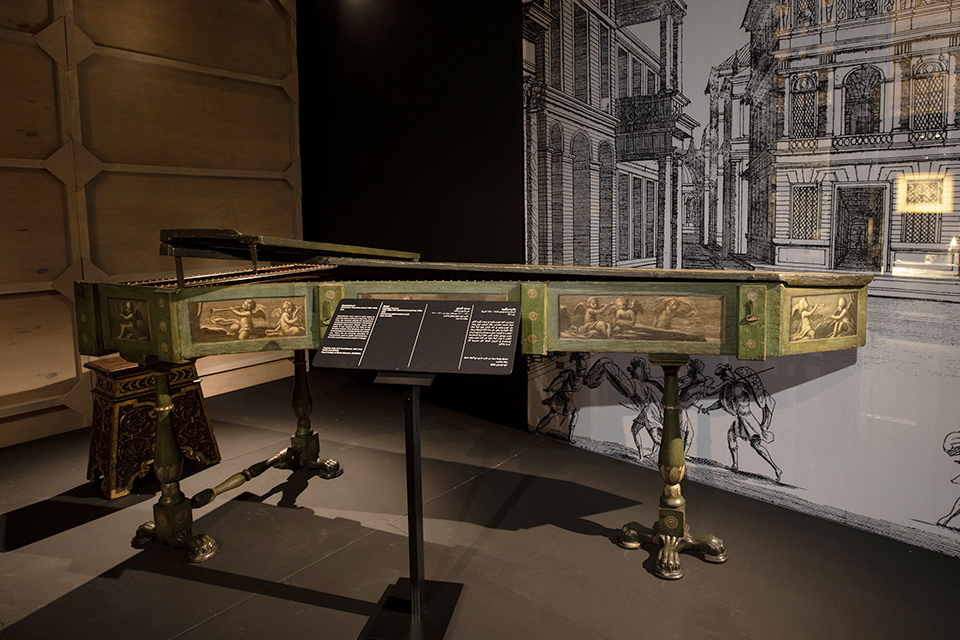Â鶹ÊÓƵ Museum sends 16th-century harpsichord to Oman
Friday 18 January 2019
The Â鶹ÊÓƵ Museum has lent one of its most prized items to the V&A for a tour of their Opera: Passion, Power and Politics exhibition. The harpsichord dates back to Venice in 1531 and has been extensively restored ahead of the tour’s first stop at the Royal Opera House Muscat in Oman.
was a landmark exhibition presented by the V&A and Royal Opera House in 2018, which explored a vivid history of opera from its origins in late-Renaissance Italy to the present day. Harpsichords like this one were used in early opera to play the basso continuo or bass line. At this time, the musicians playing the harpsichord would also act as the conductor. This lavishly decorated instrument would have belonged to a wealthy family for private use while harpsichords used for performance would have been simpler in design.
The Â鶹ÊÓƵ Museum worked with expert paintings conservator Lucy Odlin to restore the harpsichord’s case. Of particular interest was the intricate decoration on the instrument’s lid, which depicts Venus and Cupid. Students studying for an MSc in Conservation at UCL joined the Museum for the restoration and the instrument was also taken to the Courtault Institute for X-Radiography, revealing the materials and techniques originally used for the decoration.
[image1]
Â鶹ÊÓƵ Museum Conservator Susana Caldeira travelled to Oman in January to oversee the installation of the harpsichord into the touring version of the exhibition. Susana commented: ‘This was a very interesting project to work on; it was brilliant to see the harpsichord restored to its former glory by Lucy and her team. The instrument has pride of place in the exhibition and it’s wonderful that it will be enjoyed first-hand by people so far away from London!’
After Oman, the harpsichord will travel to Madrid and Barcelona with the Opera exhibition. The research undertaken in preparation for the conservation of the harpsichord was supported by a grant from the Finnis Scott Foundation.
Find out more about the Â鶹ÊÓƵ Museum.


